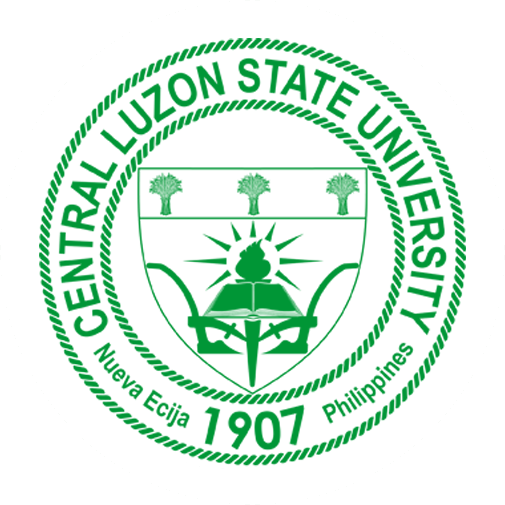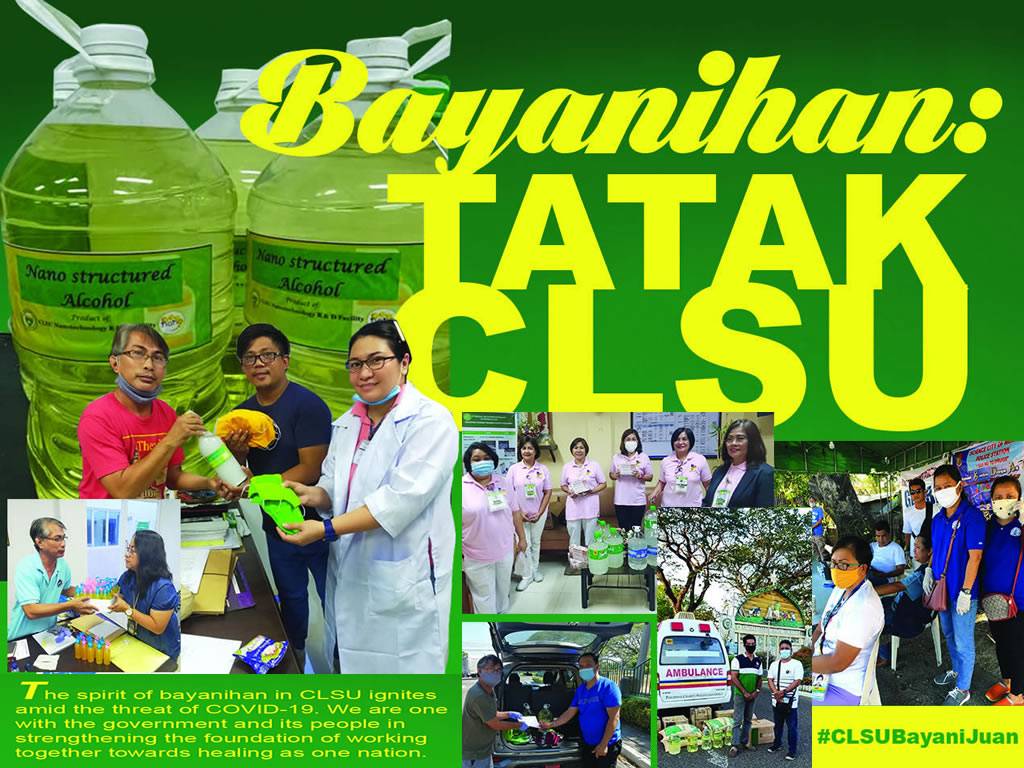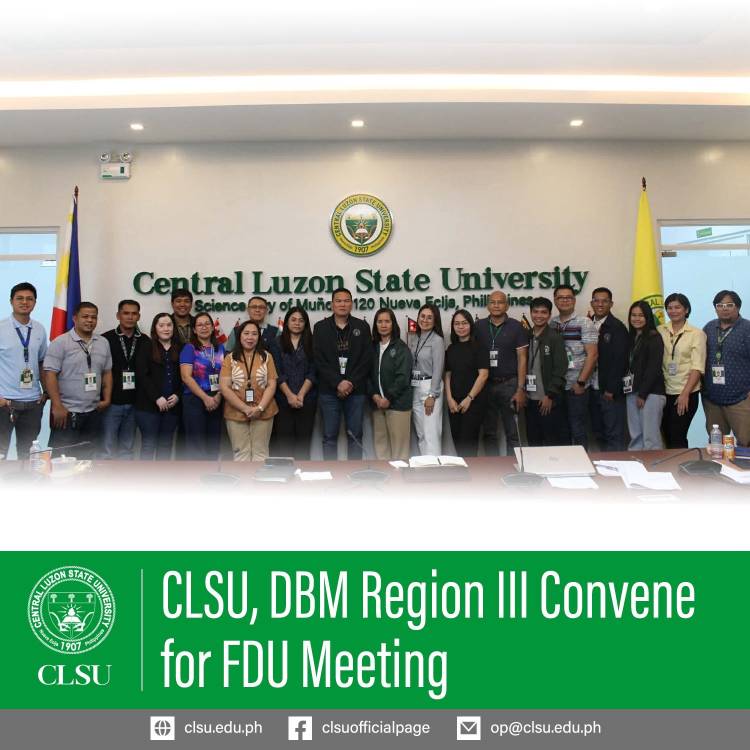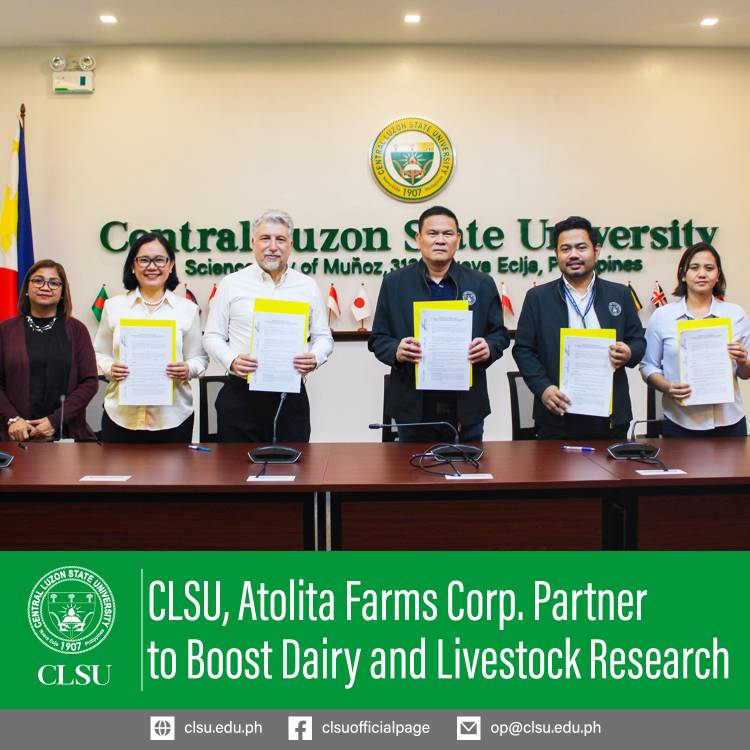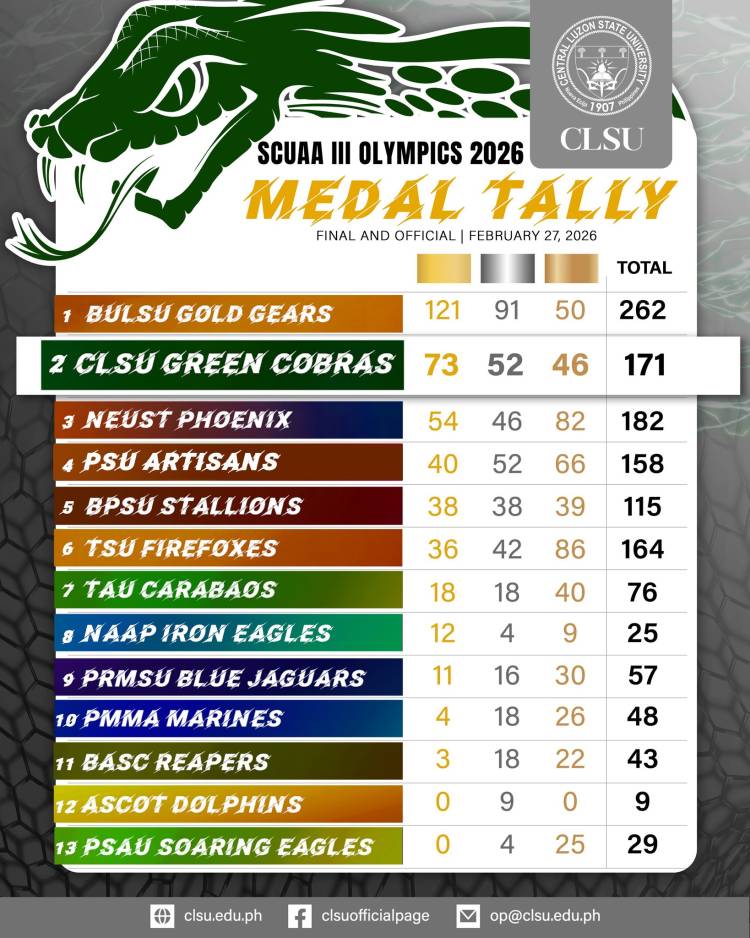In the midst of uncertainties and fear during an ongoing coronavirus pandemic, CLSU faculty and staff have taken it upon themselves to help those in need, the frontliners and the stranded students.
The University, through the nanotechnology research team, initiated the production of nano-structured alcohol, nano-enhanced hand sanitizer, and washable face masks with nanofiber filter as a response to the dwindling source in the market due to panic buying.
Immediately, these products were distributed to Dr. Paulino J. Garcia Memorial Research and Medical Center, San Jose General Hospital, Talavera General Hospital, Philippine National Police - Munoz, Bureau of Fire Protection - Munoz, Philippine Merchant Marine Academy, University Infirmary, and the Office of Student Affairs (OSA).
However, with the present situation where COVID-19 cases are rising by day, the produced products are limited, and that, there is a need to sustain the production of bioethanol so that the University can still proceed in producing more nano-structured and-enhanced products.
So, to continue and sustain this activity, the University through the Gender and Development (GAD) Office allotted funds amounting to Php 1,523,750.00.
“Supporting the production of these products is an opportunity for the University to really help the communities in difficult times like this, as we are one with the government and the people in working together to heal as one nation, ” said Dr. Edgar Orden, CLSU President.
The funded project dubbed as ‘CLSU COVID-19 RESPONSE: Engaging Men and Women Researchers of CLSU in the Production of Nano-Enhanced Products’ was proposed by Dr. Fe Porciuncula, Vice President for Research, Extension and Training together with Dr. Juvy Monserate, Nanotechnology R&D Facility Head, Dr. Marvin Cinense, Affiliated Renewable Energy Center (AREC) Director, and Dr. Victorino Taylan, College of Engineering (CEn) Dean. Cooperating units in this project include the Biotech Analytical Laboratory, Ramon Magsaysay-Center for Agricultural Resources and Environment Studies, Research Office, University Business Affair Program (UBAP), and College of Home Science and Industry (CHSI).
According to Dr. Porciuncula, this is a quick response of CLSU to the pressing situation brought about by COVID-19 with an aim to: enhance/increase the production on nano products in an effort to respond to the situation; mobilize the men and women researchers of the University in the production of nano products; and sustain its production for distribution to frontliners with service orientation, and eventual intention of commercialization.
To be able to produce the ethanol needed for the production of nano-structured alcohol and nano-enhanced hand sanitizer, Dr. Cinense explained that the production of bioethanol which is 85 to 90 percent alcohol requires fermentation and distillation process diluted with distilled water to obtain the 70% ethyl alcohol. This then is being infused with nanoparticles and turmeric extract to create the nano products.
The GAD funded project hopes to produce 10,800 liters of nano-structured alcohol, 1,200 liters of nano-enhanced sanitizer and 5,000 pieces of antiviral face masks. This will be made possible thru the bayanihan spirit of the different units of the University wherein the men and women researchers from the different units shall be mobilized to produce the nano products despite the enhanced community quarantine being implemented. Apart from the 90-95% ethanol to be procured, the AREC and CEn, will produce bioethanol from molasses fermentation and distillation using their fabricated distilling apparatus. The Biotech Analytical Laboratory, Research Office and the RM-CARES will simultaneously mobilize the dilution process. The Nanotech team will then be responsible in the final production of the three nano products. The UBAP and or the CHSI shall be responsible in the production of the antiviral face masks.
“These efforts will form part in the provision of supplies to the extent possible - to the scarce sources of alcohol, sanitizers and face masks in the market, keep safe the frontliners/other users in an effort to arrest the deleterious effect of COVID-19, and combat and or inhibit the spread of COVID-19 to the extent possible, ” Dr. Porciuncula exclaimed.
On the other hand, the OSA together with other CLSU volunteers such as the University Student Supreme Council (thru the Student Development Fund), faculty and staff, campus-based student organizations - Alpha Sigma Fraternity, Beta Sigma Fraternity, JPIA-CLSU, and College of Engineering Student Council, spearheaded the continuous production of customized face masks, repacking of relief goods and personal hygiene kit, and distribution to stranded students staying in the bounds of the University and nearby apartments and boarding houses.
Aside from this, the University continuously offers affordable and fresh vegetables and eggs as well as broiler and cull chicken available to faculty and staff members. These are produced by the College of Agriculture and the University Business Affairs Program, respectively. Rice distribution to CLSU frontliners and stranded students was also done as part of the University’s corporate social responsibility.
